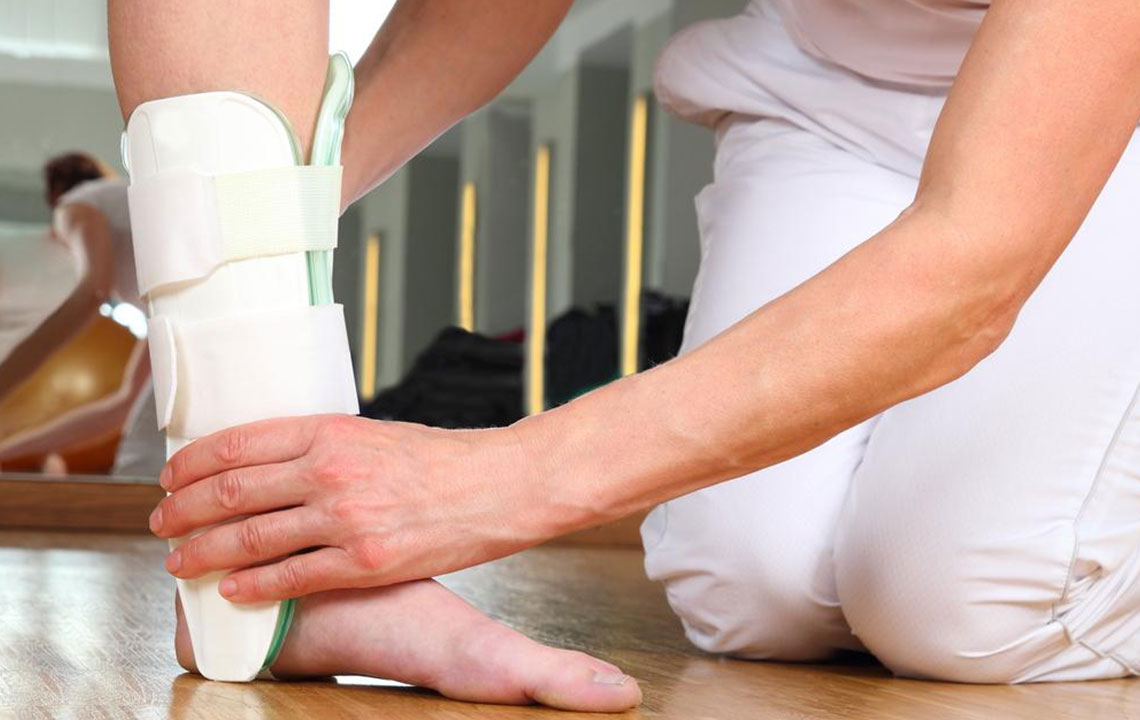Choosing the Right Drop Foot Braces
Drop foot is a condition affecting the ankle joint due to which the patient is unable to raise the foot off the ground. The characteristic movements of the ankle joints, also known as plantar flexion and dorsiflexion, are necessary for the downward and upward movement of the toe while walking.
Foot muscles of patients with drop foot lose their normal function partially or, in some cases, completely. Due to the weakness of the muscles that raise the foot at the ankle joint, the patients have to drag their toes along the ground or bend their knees to raise their foot much higher than usual to avoid the dragging of the feet.

Foot drop can affect one foot or both feet at a time. Drop foot is not a disease in itself, rather a symptom of an underlying problem. It may be a temporary or a permanent condition, depending on the cause. The condition can be made manageable with the use of drop foot braces.
Causes of Drop foot:
- Multiple sclerosis
- Stroke
- Cerebral palsy
- Polio,
- Some forms of spinal muscular atrophy
- Lou Gehrig’s disease
- Spinal stenosis
- Charcot-Marie-Tooth disease;Local injury or damage to the peroneal nerve
Muscular dystrophy or myositis.
Treatment of Drop Foot
Treatment of drop foot would depend on the specific cause of the disorder. Drop foot braces are commonly recommended by doctors to provide support to the foot. They can provide the patients with a more normal and comfortable gait. Several different types of drop foot braces are available.
You can opt for a custom-made brace that is molded to the shape of your foot, ankle, and leg or simply pick up a prefabricated brace. The type of drop foot braces that would be suitable for you would depend on your condition. It would also ultimately depend on your budget and your doctor’s recommendations. Your doctor is the best person to advise you in this regard.
Types of Drop foot braces:
- Short Leg brace with Fixed Hinge- This type of foot brace is suitable for patients with drop foot and flat foot. It is light and fits easily into shoes. It offers excellent support to the foot by keeping it at 90 degrees to the leg. Stroke patients and those with Charcot-Marie tooth disease experience an unwanted inward rotation of the foot along with the drop foot. Short leg brace with a fixed hinge is usually prescribed for this condition.Fixed hinge, as the name suggests, does not allow the normal movements of the ankle joint. Therefore, you may not be able to walk as normally as it may be possible with some other types of braces. Also, the short leg brace may not be the ideal fit for different leg sizes.
- Dorsiflexion Assist Drop foot brace- This is an improvement over the short leg brace with a fixed hinge. It includes a spring-like hinge, which allows the ankle to move to facilitate the upward movement of the toe. The foot can be easily raised off the ground providing for a more natural gait; however, it is not recommended for people more than 6’ tall or those who weigh more than 225 lbs.
- Plantarflexion Stop AFO- A “plantarflexion stop,” as it is obvious from its name, does not allow plantarflexion, or stops the foot from pointing downward. However, it features a hinge that allows for normal dorsiflexion. It has been found to be effective for patients with more severe drop foot. However, some patients find it very bulky.
- Solid drop foot braces- These types of drop foot braces restrict the movement of ankle joints including both plantarflexion and dorsiflexion. These are usually recommended for patients who are suffering from a complete loss of muscle strength and an unstable knee. It provides effective support ad control of the foot while walking.
- Energy return Braces- A natural flex made of carbon graphite is built into the material of this type of leg brace. It provides tremendous assistance and control in dorsiflexion. They are lightweight and provide good control.
If you are investing in good quality drop foot braces, there is no reason why they would not help you in restoring your normal gait. However, you should remember that what works well for some people may not work for others. You may have to try out several braces before finding a comfortable one. You would definitely be better off if you proceed under medical counsel.
Nevertheless, some accessories including an arch support, socks, and stable heavy shoes are more or less essential to drop foot braces. The arch support stabilizes your foot by filling in the gap between your foot and the brace, while socks protect the skin from the upper portion of the brace.